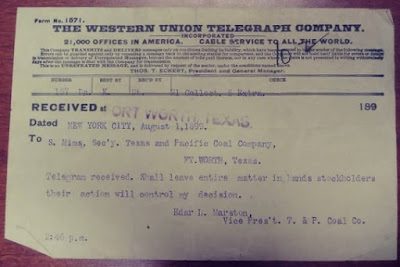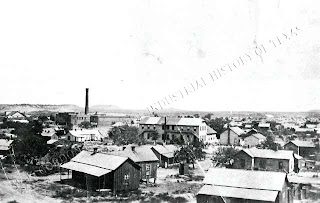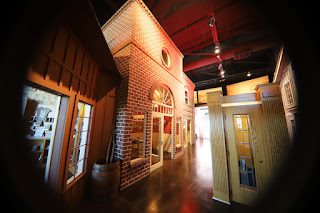The History of Thurber in 12 Objects: Music and News in and Around Thurber

by Corey Holbert

Rucker Collection, W. K. Gordon Center
An RCA Victor radio manufactured and used between 1930 and 1940 is the topic of discussion for this month’s blog. The radio stands eight inches high and ten inches wide. At the top of the radio is a leather handle accompanied by a red antenna wire that wraps around the handle before attaching to a metal screw under the bottom. The radio has one speaker, a dial and two knobs on the front. The leather handle would’ve made carrying easy for Mr. Jim R. Wilson, the original owner of the radio. Traditional radios are rare in today’s society with many families opting to stream music, use CD players, or even their cellular devices to enjoy their favorite tunes or talk radio shows. Live in the past with us for a moment and imagine what you may have listened to on your RCA radio.
The 1930s is considered the Golden Age for radios in America. At the start of the decade, as many as 12 million American families had radios in their homes. By the end of the decade, that number more than doubled. As time went on radios became smaller and cheaper making it an essential piece of furniture to have in your home. Research shows that American families spent a minimum of four hours a day listening to radio broadcasts in the 1930s. During this time radio was controlled by networks. Networks leased airtime to advertising agencies to run programs such as soap operas. The most popular soap operas of that time included Ma Perkins, The Guiding Light and the science fiction show Flash Gordon for children. Thurber area residents may have tuned into these shows with their families and neighbors.

Courtesy of anyjazz65
http://bit.ly/2LDt8hc
As we’ve said in past blogs, Thurber residents loved music as much as we do today. The National Broadcasting Company operated its own symphony orchestra led by an Italian conductor named Arturo Toscanini. Thurber businesses such as gas stations and bars most likely used radios to entertain customers, guest, and regular patrons.
As Americans endured the Great Depression and World War II soap operas began to take a back seat to political programming and network news. World War II created an avenue for major networks to create news departments covering national and international events. Located so far from a large city, Thurber residents accessed national and global news with their home radios. Major events during the 1930s and 1940s such as the election of President Franklin D. Roosevelt, implementation of the New Deal and American involvement in World War II would have dominated topics discussed on radio news channels. Immigrant families of Thurber may have used a radio to hear news about world affairs which could help them feel closer to their native lands.
Radios like the RCA Victor in our collection played an important role in the lives of Thurber area residents. From a source of entertainment to a trusted news source, radios kept neighbors connected to each other and the rest of the world.





